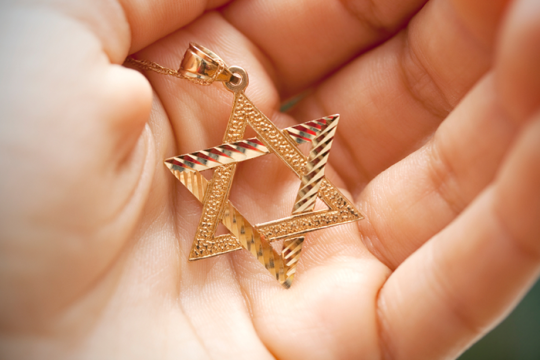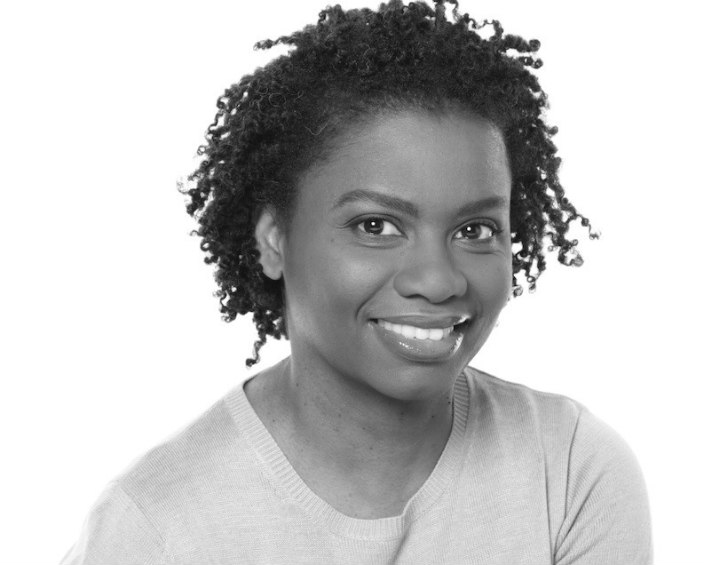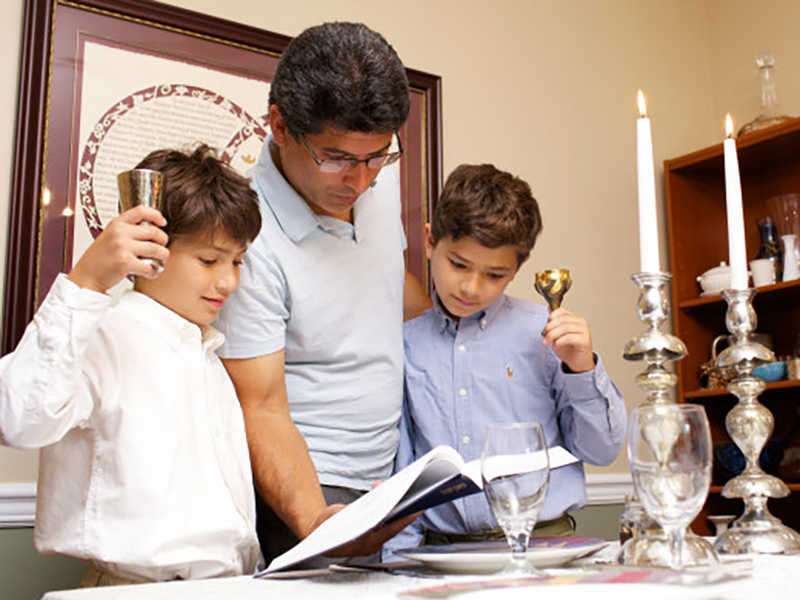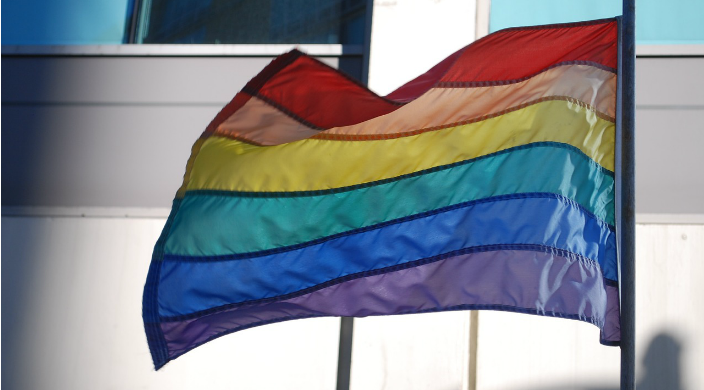
In the late 1980s, legal same-sex marriage was just a dream and few people knew about, asked for, or volunteered their pronouns. Sadly, it was a time when it wasn't unheard of for friends and acquaintances who were Jewish and queer to share that their family members sat when they came out.
On my east coast university's campus, there was a Hillel and a Lesbian and Gay Student Alliance, but not one organization spoke to the intersection of Jewish and LGBTQ+ realities (including the many queer identities in addition to "lesbian and gay"). Into this world, news spread that there was a gay synagogue somewhere out west.
The news was repeated in cadences of awe and hope. As Jews and lesbians, this was a vitally important symbol of connection and belonging.
In times of loss and loneliness, symbols sustain us and bring us hope. For many LGBTQ+ Jews in the United States, LGBTQ+ synagogues and organizations like Keshet and JQ International offer that sustenance. Congregations such as Beth Chayim Chadashim (Los Angeles, CA), Sha'ar Zahav (San Fransisco, CA), Congregation Beit Simchat Torah (CBST in New York, NY), and Congregation Bet Mishpachach (Washington, D.C.) are places where being Jewish and belonging to the LGBTQ+ community are not only welcomed but celebrated. Here, queer identities and their intersections are made central to the mission, liturgy, and practice.
Still, I have heard the question asked on many occasions in my LGBTQ+ synagogue: "In this day and age of increased acceptance and welcoming in Conservative and Reform synagogues, is there a need for a LGBTQ+ synagogue?"
Coming out as a member of the LGBTQ+ community means outing ourselves as different and other - outside the norms of our families, communities, and the larger society in which we participate - all spaces which are majority heterosexual and cisgender. Some families and communities are capable of affirming those of us who are queer, ensuring we are in leadership positions, and that our identities are reflected back throughout our communities. Most are not.
For the fortunate few, familial acceptance means keeping the traditions, connections and supportive networks we have always known and trusted. But far too frequently still, naming ourselves as "different" means that we are expelled from our families and communities or must leave when we find that living as our true selves invites unbearably uncomfortable and dangerous responses. Voluntarily or involuntarily, we lose support networks, feel disconnected from liturgical traditions that paint us as abominations, and disconnect from family.
I was not one of the fortunate few.
While my family did not expel me, it was made unbearably clear that living openly was not acceptable. I was told that I had "gotten away with something," viewed with suspicion when small children were close, and reminded that my family's ideal reality for my life was similar to that of a gay family friend of ours, who had kept his queer life completely hidden from everyone but his mother.
I chose to leave.
The initial euphoria of living without a script is a natural high. I joyfully explored the lesbian bar and club scene, found and lost love, and served on the boards of a few LGBTQ+ organizations. During those decades of my 20s and 30s, religious affiliation was the furthest thing from my mind - but surviving the loss of friends and chosen family, along with the impending death of my father, left me wanting a connection to my spiritual traditions.
When I Googled "gay synagogue," I discovered I lived just five minutes away from that undergraduate symbol of hope and connection, Temple Beth Chayim Chadashim. I joined and found a place where the liturgy and practice celebrate the intersection of my Jewish and LGBTQ+ identities.
No LGBTQ+ Jew who is embroiled in moments of loss asks if there is a need for explicitly Jewish LGBTQ+ spaces. We simply seek out their literal or figurative existence in our lives. The key difference between those seeking and those who ask whether such spaces are still necessary, is that the latter group is ensconced inside the walls of belonging where we openly live out the intersectionality of our Jewish LGBTQ+ identities; overall, our needs are being met.
What happens to our symbols of hope, connection, and belonging when they become internalized? How can LGBTQ+ synagogues and organizations continue to function as symbols of belonging for those of us who are lost and alone and simultaneously be something else for those of us who already feel like we belong? In speaking with those in their 20s and 30s who are part of our synagogue, I hear a call for LGBTQ+ synagogues to transform into what they need in this era of greater societal acceptance.
More recently, there has been an uptick in the organized scapegoating of LGBTQ+ individuals, particularly trans individuals, and organizations that support any notion of diversity and intersectionality. The current political landscape is less safe once again, even for those of us who have easy access to synagogue life. "Sanctuary," in all its meanings, is especially necessary in these times. How that notion of spiritual care and protection is actualized by individual synagogues must be explored by clergy and lay leaders.
For those who continue to seek, especially those in areas of the country or world that do not have access to gender affirming healthcare, protection for trans, non-binary, and gender expansive youth, not to mention an LGBTQ+ synagogue, who continue to need and want symbols of hope, connection and belonging, perhaps the question being asked is not if there is still a need for LGBTQ+ spaces, but rather what those Jewish LGBTQ+ spaces should look like. Many communities have come to realize that it is our diversity that is essential, and that makes us stronger. So what does that mean for LGBTQ+ spaces? How can those spaces serve to recognize and affirm the vast diversity of the Jewish LGBTQ+ community?
We must continue to engage with these questions. They take on new meaning in a culture where the threat of government sanctioned exclusion and persecution once again rears its ugly head, where same-sex marriage is legal, abortion and gender affirming healthcare is no longer legal (in many states), when pronouns are increasingly (but far from ubiquitously) announced and asked for upon first meeting, where many Reform synagogues openly affirm LGBTQ+ Jews, and when more families are, blessedly, fully embracing LGBTQ+ Jews.
Related Posts
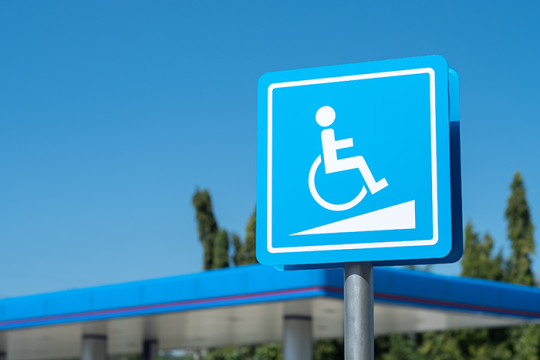
Creating A Workplace of Belonging

How We Can - and Must - Honor Neurodivergent Jews
